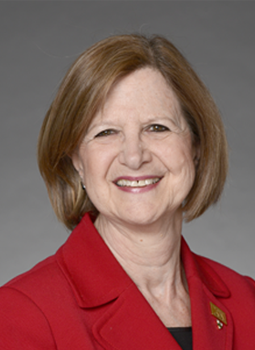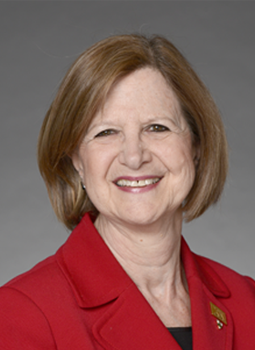Ontario is now in the throes of a fourth wave of COVID-19, driven by an aggressive Delta variant with unvaccinated or partially vaccinated persons, often younger, being hospitalized and admitted to ICUs. It is well known that to ease individual suffering and the burden on our health system, we need at least 90 per cent of eligible Ontarians vaccinated. While we have made impressive progress, we are only at 86 per cent of Ontarians 12+ who have received their first dose of vaccine, and 80 per cent who are fully vaccinated (for the most up-to-date numbers, visit COVID-19 tracker Canada).
The summer gave me a few hours a day away from COVID, and yet not without preoccupation. My mind gravitated more than once to how this pandemic has transformed our profession over the past 18 months.
I share my initial thoughts with you and invite you to come forward with your reflections. All viewpoints, combined, will help us understand better and collectively shape the path forward.
To date, COVID-19 has had four waves that have impacted the public and the nursing profession in parallel and profound ways. The first wave in the spring of 2020 was characterized by fear and response. Nurses, as we always do, responded to the threat with strength and with a singular focus: to do the best we could for the public and for patients. For our colleagues on the frontlines, their work was influenced by fear of the unknown, catching the virus, and bringing it home to their loved ones. In the long-term care (LTC) sector, the fear led to disbelief, then anger over the realization that residents and staff had inadequate resources in the form of hands-on care and personal protective equipment (PPE) to protect against contracting what was then called coronavirus. The loss of life in LTC during the first wave was devastating and preventable in at least 40 per cent of cases (when compared to other OECD countries). The suffering amongst residents was unbearable, and the erupting anger amongst families, staff and the public was palpable.
The second wave of the pandemic, which began in the fall of 2020, can be characterized by moral distress and restlessness. This was evident in the government’s announcement in October 2020 that it would expand mental health supports. But the public’s response – and that of nurses too – was a growing distrust in the ability of government to take control and institute timely and strong measures to protect all Ontarians. New restrictions and lockdowns were often too little, too late. Nurses, like so many other essential workers, were reaching a breaking point.
The third wave of COVID-19, in the spring of 2021, hit the acute care sector harder than any other. And while we emerged exhausted, we no longer believed this would be the end. This combination of exhaustion and resentment was exacerbated by the arrival of a fourth wave in August 2021. These latest two waves have led nurses to a professional uprising of sorts.
The third and fourth waves of COVID-19 have woken nurses to the realization that a revolution is needed to mend what needs mending. We are seeing the determination of our colleagues to speak up about the wrongs that have brought us to this point. This processional uprising of voices is reverberating through social media and people are noticing.
Nurses’ willingness to go on record about critical issues, to raise their voices and to raise public and media awareness through social media, is revolutionizing our profession.
I am so inspired by most aspects of our nursing revolution, though admittedly saddened by others. This movement has grown not from RNAO or other “capital L” leaders, but rather the frontline leaders of our health system – RNs, NPs and nursing students – who are the heartbeat of health care. I am proud of those who have used their voices responsibly to uphold the standards and expectations of our profession. But I would be remiss if I didn’t express my deepest disappointment with those few on the fringe who organized rallies against lockdowns – when lockdowns were mandated and needed – or now against vaccinations and vaccination certificates. These actions are an affront to nursing and everything we stand for as nurses, including but not limited to evidence-based practice.
While these outliers are getting attention, they will not get my attention today. Instead, I want to focus on those who are speaking eloquently, and with evidence, about the issues exacerbated by the pandemic. To reference a few well-used but fitting analogies, the genie is out of the bottle. The sleeping giant has awoken. Nurses are unwilling to just put up with inaction – or inappropriate action – when it comes to threats to our practice, and particularly when those threats impact negatively on patients. And these are the nurses I want to applaud.
Our social media leaders (SML), are raising their voices about infuriating legislation that limits compensation for health-care workers (Bill 124). They are pushing the need for paid sick days for all, the urgency to stop systemic racism, the necessity of a basic care guarantee in LTC, addressing surging opioid overdose deaths, the exodus of nurses now and post-COVID, and the immediate need for a nursing human resource strategy that will tackle, once and for all, impossible workloads and skill mix.
SMLs’ willingness to go on record about these critical issues, to raise their voices and to raise public and media awareness through social media, is revolutionizing our profession. One of my proudest moments was when RNAO called for mandatory vaccination for all health-care workers and all educators – and the great majority of nurses supported the call by getting vaccinated and demanding the same from others – because this will protect patients, students and co-workers. SMLs were central to our collective success.
If there is a silver lining to COVID-19, this is for me an important one: SMLs leading change.
I urge each and every RN, NP and nursing student to join this chorus of SMLs. Speaking out through social media or in whatever way you can will make the difference. Charlotte Edith Anderson (the first Native Canadian RN), Mary Seacole (British Jamaican nurse), Harriet Tubman (American abolitionist and political activist) and Florence Nightingale (founder of modern nursing) pioneered for us vocal advocacy some 200 years ago. I know they would be as proud as I am of today’s nursing leaders who are working for a better tomorrow.


